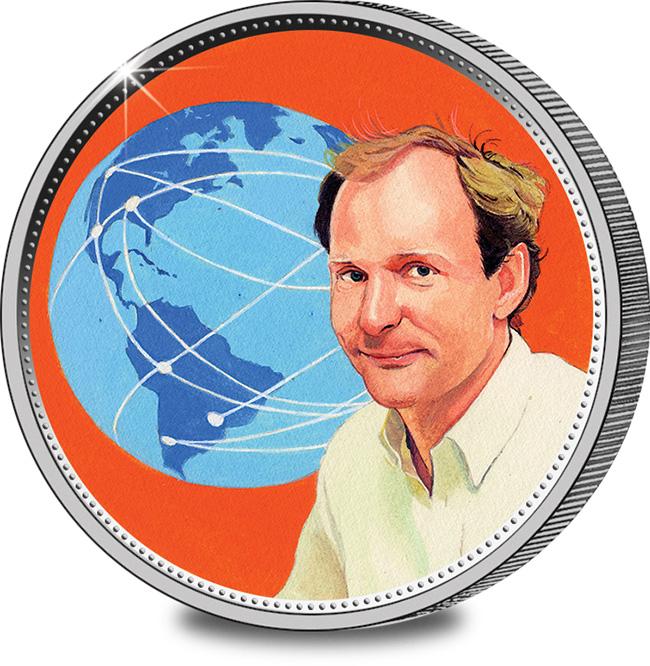
 |
Full name: Sir Timothy (Tim) John
Berners-Lee
Born: 8th June 1955
Invention/Achievement: The World Wide
Web
Date of introduction/Achievment: Proposed
March 1989, implemented 6th August 1991
Died:
|
While Sir Tim Berners-Lee is a comparatively wealthy man, he is
a pauper compared to those who have made multi-billion dollar
fortunes from his invention, "The World Wide Web".
Tim Berners-Lee was the inventor of this now staple necessity
which enabled anyone with a computer, an internet connection and a
Web browser to access, navigate between and interact with Web pages
containing text, images and other multimedia events on the
Internet, he decided that the use of Web would be freely available
to all, with no patents or royalty payments from his invention.
Berners-Lee was born in London in 1955 to parents who worked in
computer science, where after graduating with a first class degree
in physics from Oxford University he went on to work for CERN (the
European Organisation for Nuclear Research). In 1989 CERN was
seen as a major wide-area networking hub and Berners-Lee proposed
using a Hypertext communication system to enable the easier sharing
of massive amounts of research data held by CERN. It was,
said Berners-Lee, "…an act of desperation because the situation
with it was very difficult." It was after writing his CERN proposal
that Berners-Lee realised that it could be implemented on a
world-wide open access basis.
The first Website was at CERN and was put online on
6th August 1991. In 1994 Berners-Lee founded the
World Wide Web Consortium, made up of companies who were agreed to
improve the quality and reliability of the Web through creation and
implementation of standards.
Since then the World Wide Web has become an integral part
of society, transforming the way we share information, communicate,
socialise and do business. Its growth has been astonishing,
from 16 million (0.4% of world population) in 1995 to over 3
billion (42.3%) in mid-2014.
There are over one billion Websites (though not all are active)
and users can access an estimated one trillion pages.
Information, once the preserve of those with access to
libraries of reference book, can now be gathered at the touch of a
button.
In 2004 Tim Berners-Lee was knighted by the Queen for "services
to the global development of the Internet" and now remains highly
active in promoting universal access to the Web and "Net
Neutrality" where he is opposed to government or corporate control
and monitoring of users' browsing activities.